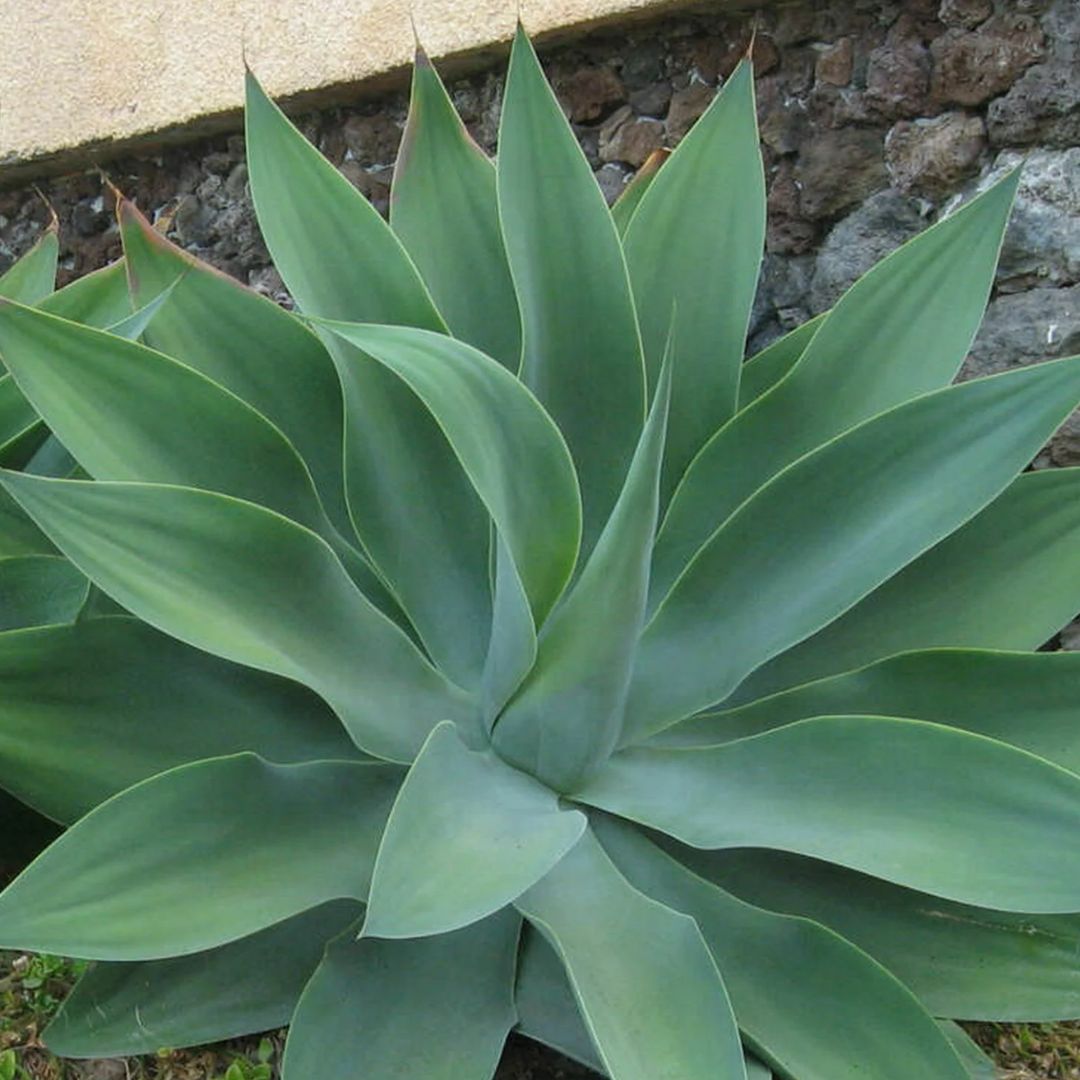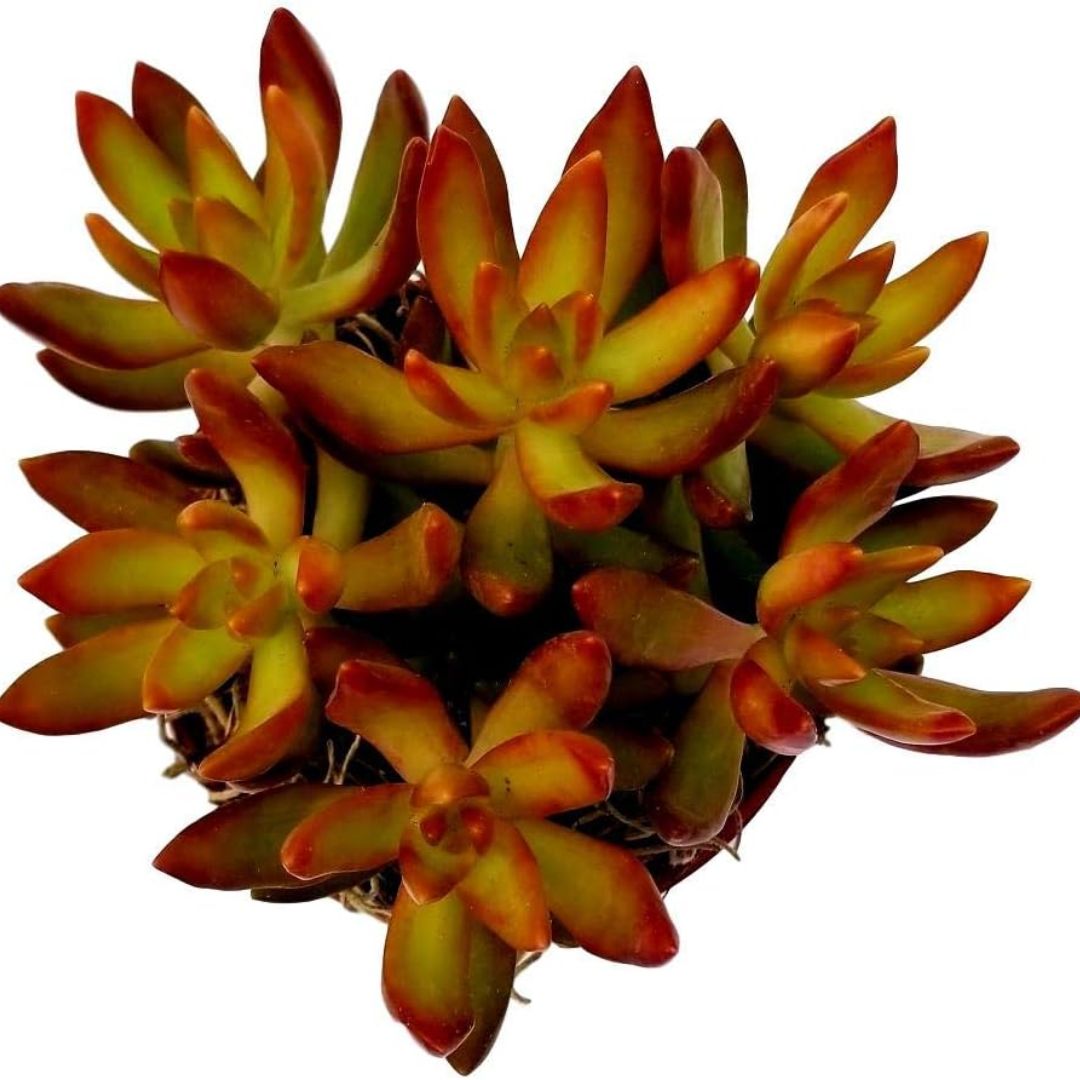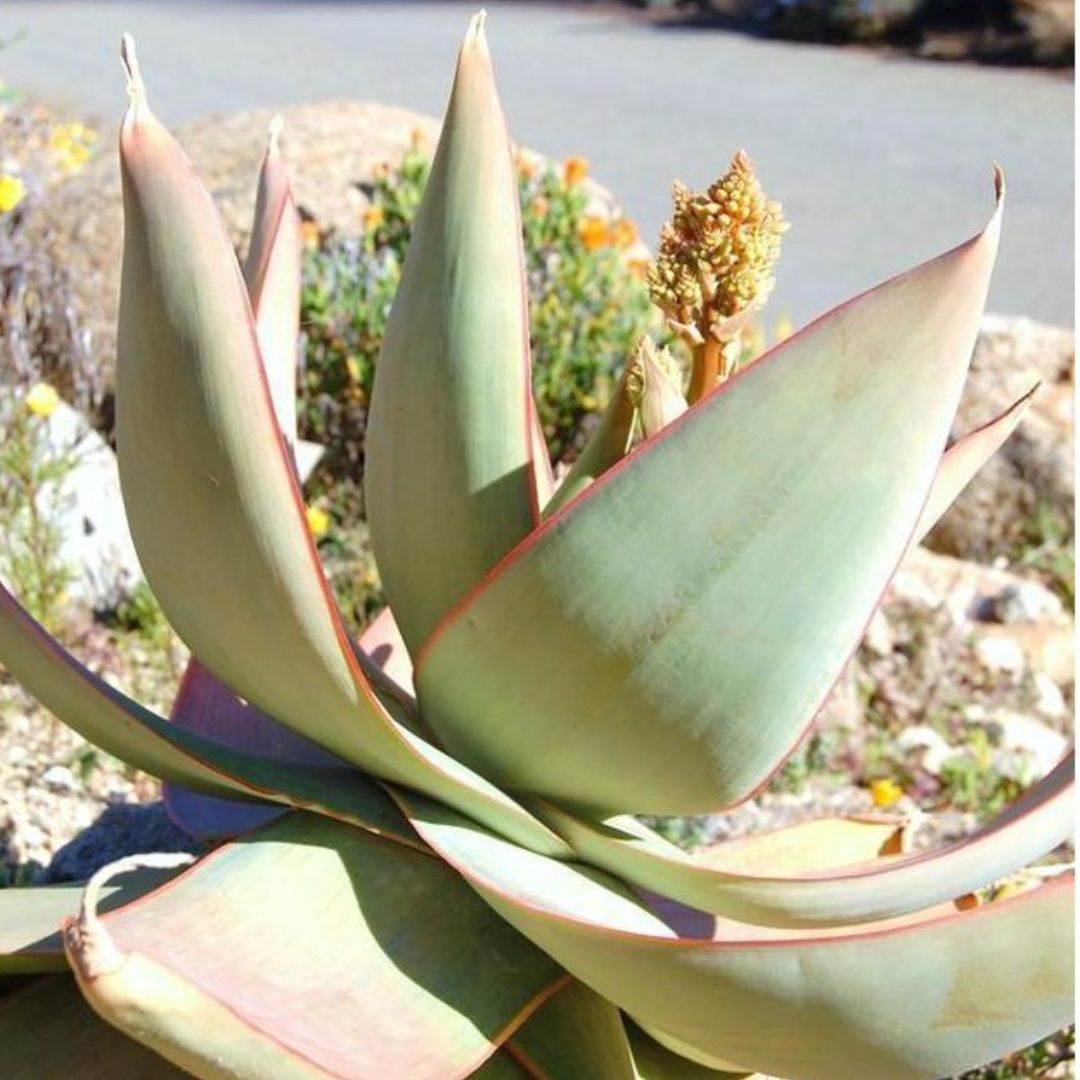7 Succulent Garden Ideas That Will Elevate Your Outdoor Space — And Add Beautiful Dimension
Whether you're using them in small vignettes or much larger planting schemes, succulents offer carefully curated moments to the outdoors
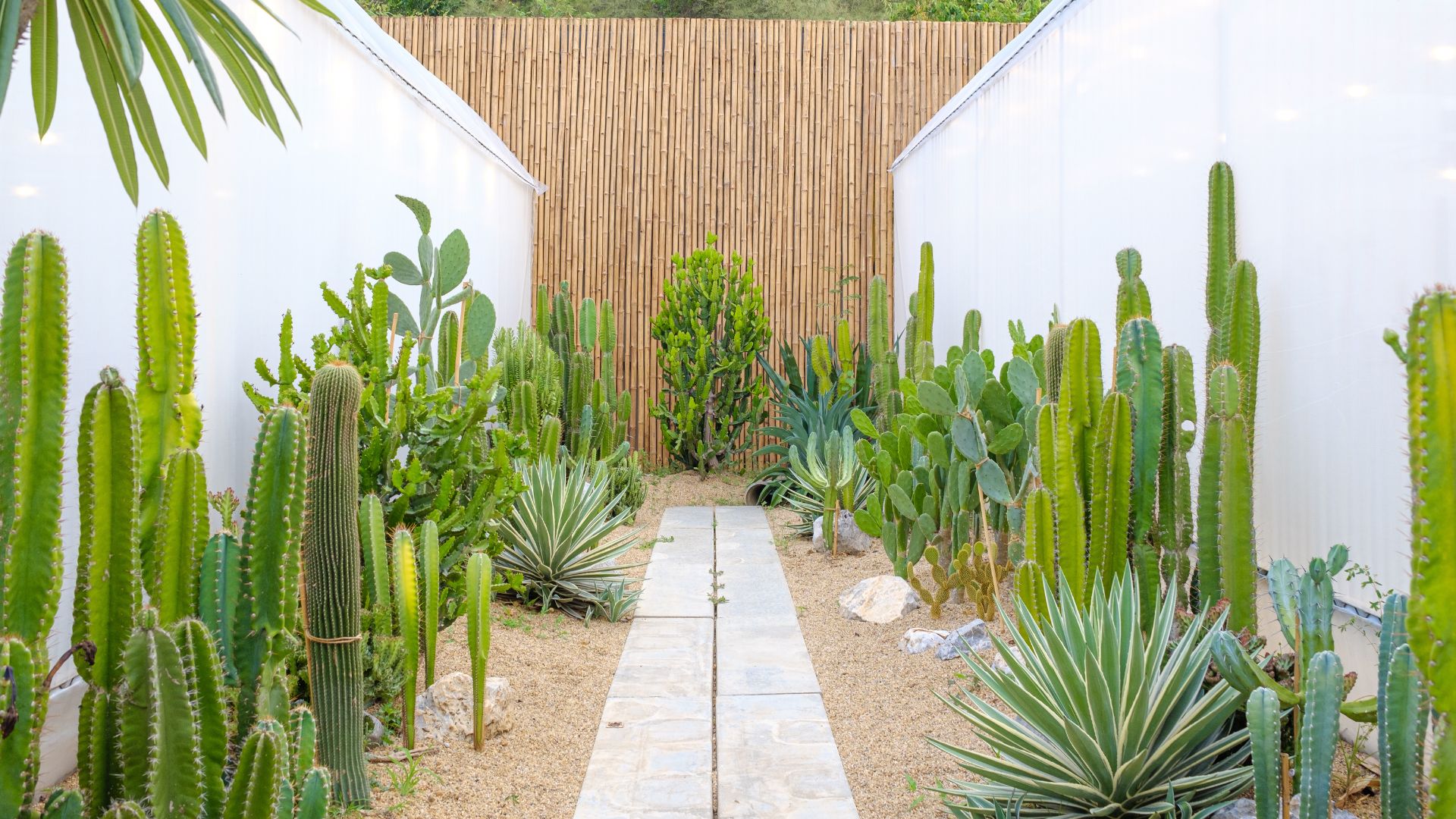
Beautiful succulent garden ideas can be used in a variety of ways to transform your landscape. These versatile plants add interest to both contemporary designs or create a more unstructured look when left to grow informally. Either way, succulents are a super-stylish addition to your planting. They're ideal for small urban spaces, too, if you're gardening on a balcony, terrace, or roof. They work in green walls and other vertical planting systems and can be used to create some pretty cool container gardens, too.
If you live in a dry climate succulents are the go-to plants for landscaping as they love hot and arid conditions. The good news is they're also one of the most low-maintenance planting designs. Choosing plants that grow naturally together in hot, dry regions means they will look cohesive together and flourish equally well.
We've gathered some inspirational succulent garden ideas that show how to work these gorgeous plants into your design. Give our advice a go and you'll soon discover that succulents are the best plants for dry gardens, while at the same time adding a uniquely individual touch.
1. Introduce texture with succulents
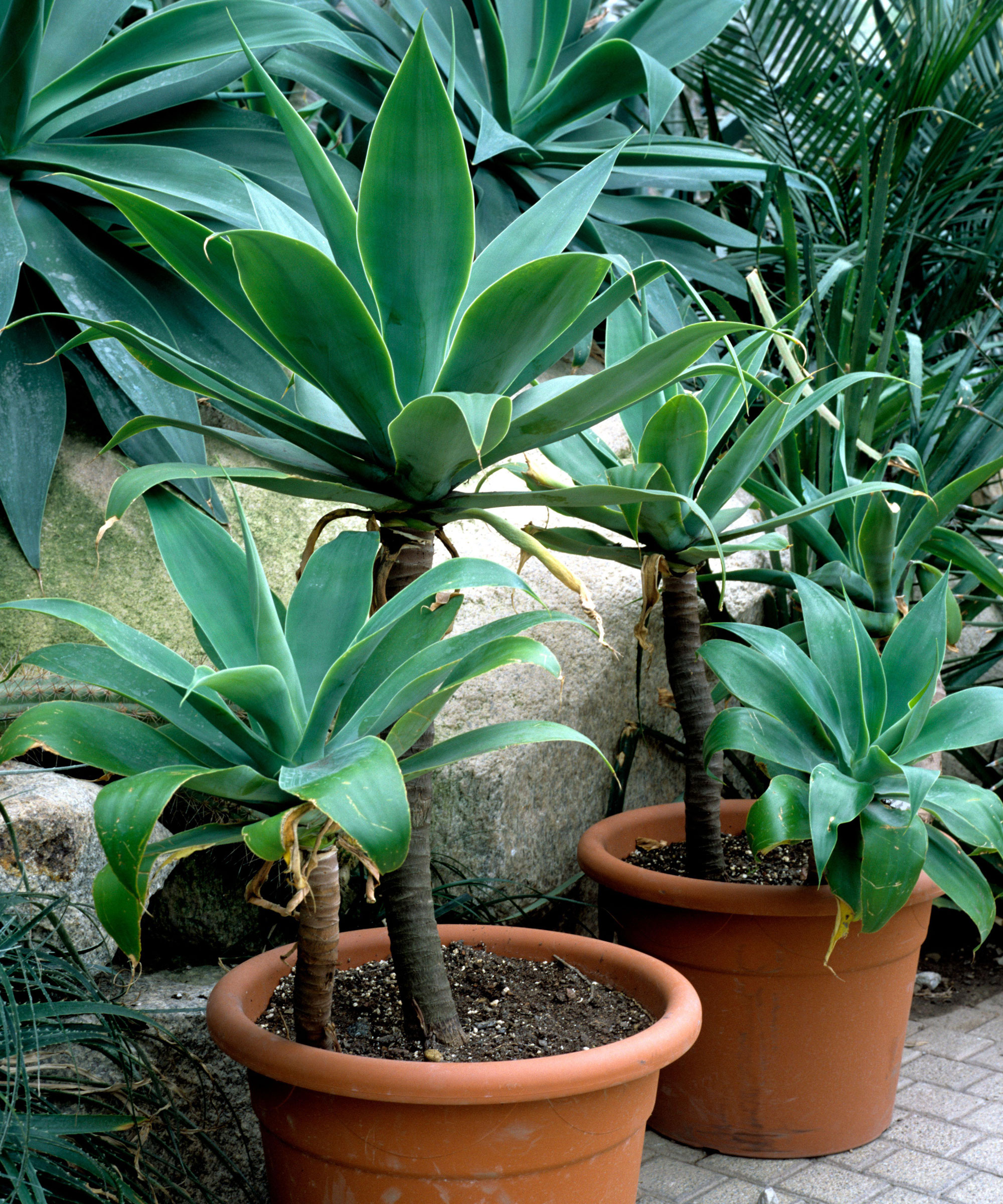
Texture is integral to succulent garden ideas and can be visual as well as tactile, taking any succulent composition to the next level. The leaves of these Agave attenuata plants, for example, are smooth to the touch despite their spiky outline — they're also ideal for your abundant cactus garden.
The easiest way to add texture to your succulent garden is through contrast. Try layering soft or hard plants with fine or bold ones. You could juxtapose the smooth large flat leaves of Agave attenuata, for example, with the cylindrical, fleshy pencil-shaped ones of Cotyledon orbiculata to achieve eye-catching textural contrast.
"Use texture to enhance contrast and repetition, and to create or call attention to focal points," says horticulturist and succulents expert Debra Lee Baldwin, author of Designing with Succulents. "Keep it in mind as you select and position plants that have fuzzy, waxy, shiny, or dull leaves."
2. Create a shapely outline with a sculptural element
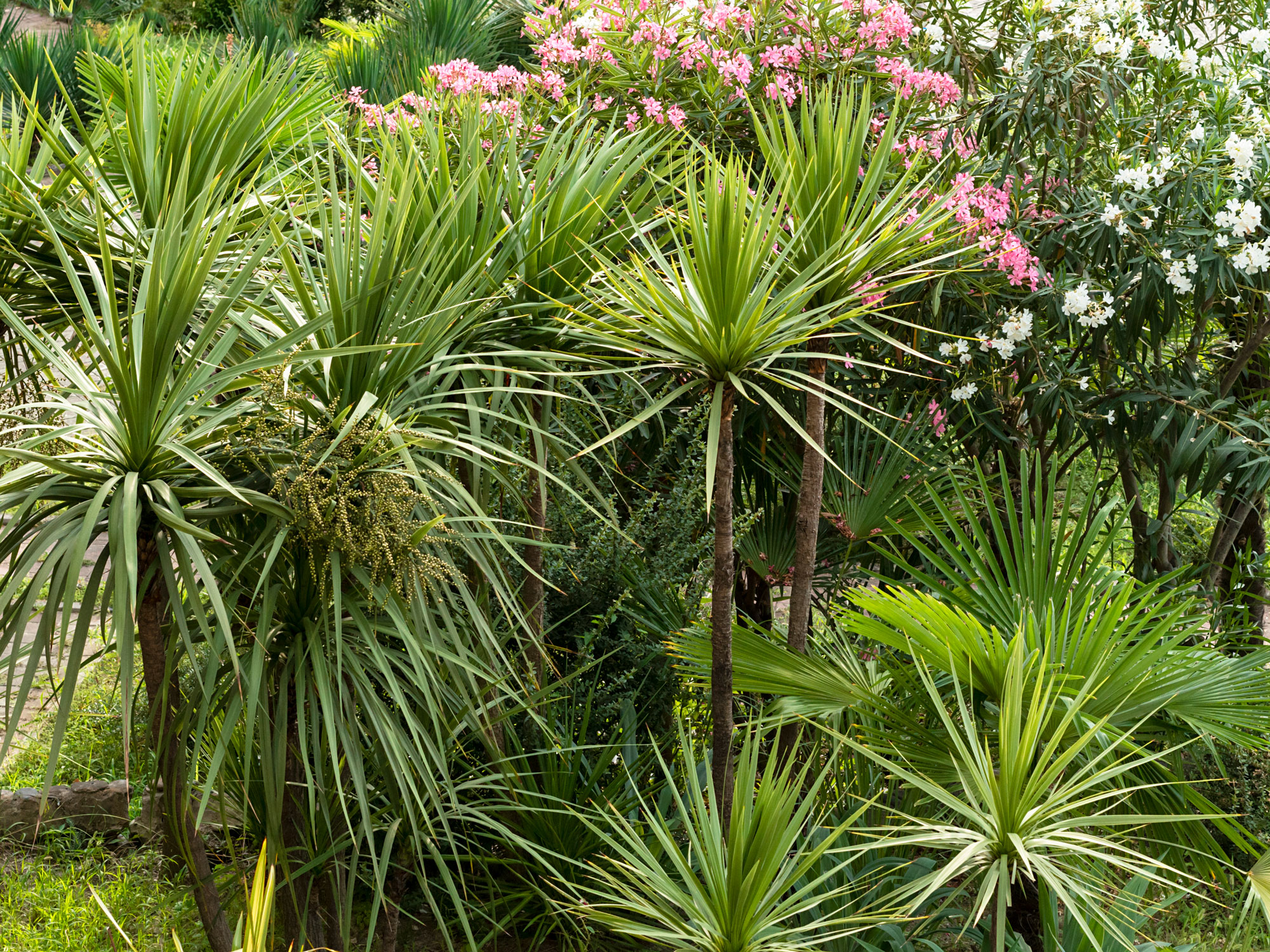
Succulents come in an amazing range of shapes. Some of the more common designs include fountain-like agaves, rosette patterns such as aeonium, arching sword-like yuccas, and vertical columnar types like pencil-shaped Euphorbia tirucalli. These will all look great silhouetted against other elements of your garden design such as a wall, pool, or simply other plants in the flowerbed.
The Livingetc newsletters are your inside source for what’s shaping interiors now - and what’s next. Discover trend forecasts, smart style ideas, and curated shopping inspiration that brings design to life. Subscribe today and stay ahead of the curve.
The ultimate accent plant in a dry garden is the yucca, which is native to the southern United States. "Their leaves are stiff and fibrous, usually tipped with sharp spikes," says garden expert Johanna Silver, author of The Bold, Dry Garden. "Some stay at ground level, like clumps of rigid grass, while others eventually sit atop tall trunks, forming striking silhouettes."
Johanna recommends Yucca carnerosana, which has stiff green swords and is one of the most dramatic varieties. "It's great for marking an entrance or emphasizing a part of the garden. It plays nicely with desert plants, as well as more tropical-looking ones."
3. Add color to accentuate your planting design
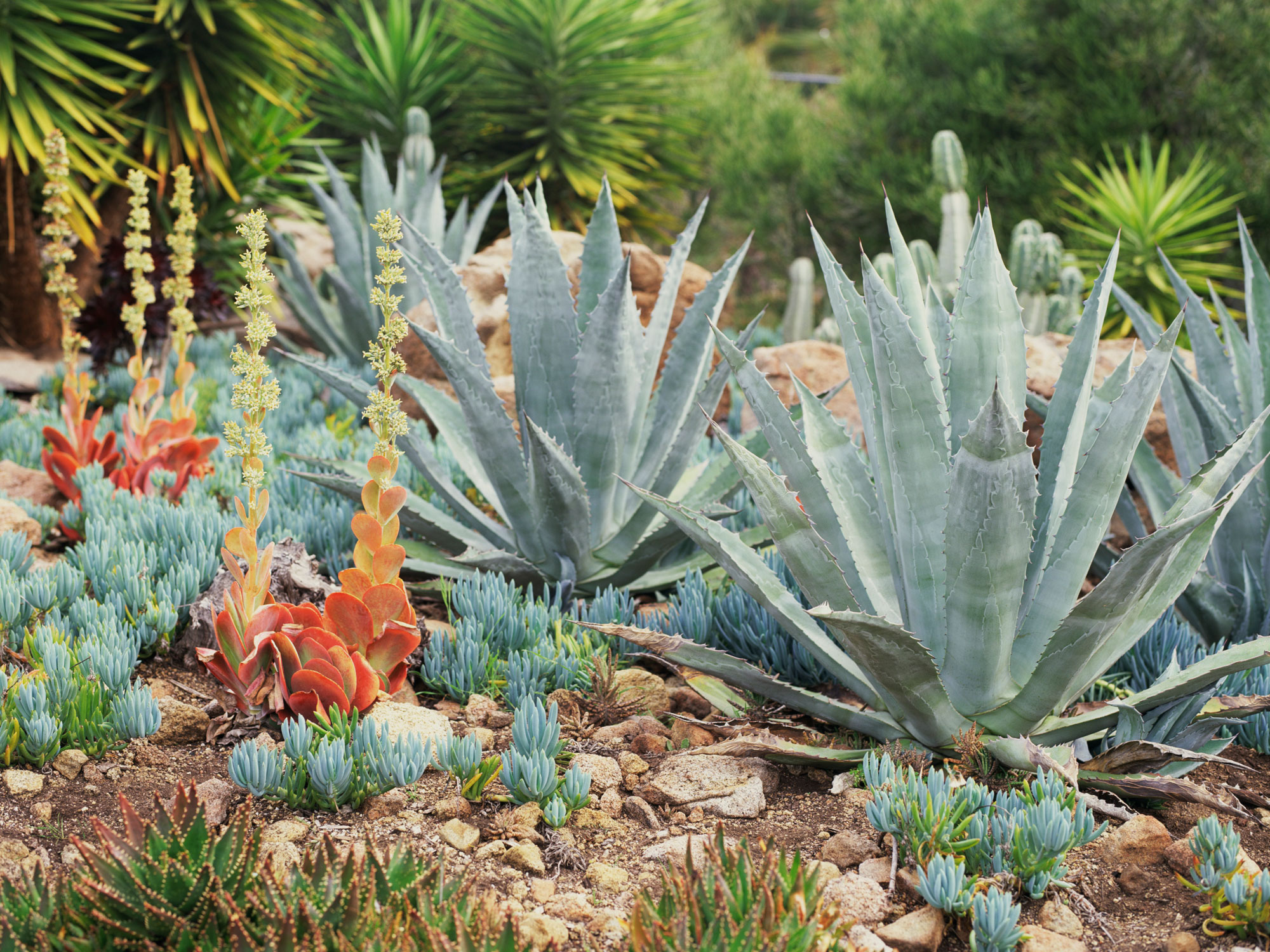
"Desert gardeners sometimes bemoan there being too much yellow in the native plant palette, but yellow is not the only option," says low-water garden expert Nan Sterman, author of Hot Color, Dry Garden. "Color-theme gardens can feature purples, reds, or just greens. Some of the most interesting color gardens are tone-on-tone, where foliage, flowers, garden walls, and accessories are all different shades of the same color."
Succulent foliage colors include zingy chartreuse green, a range of plums, pinks, and purples, and the cool tones of light silvery grays, so there's plenty of variety to choose from when planning succulent garden ideas based on color.
Nan suggests painting a wall a beautiful coral color to set the tone for a hot combination of orange-flowering Aloe striata against a golden mound of Sedum nussbaumerianum, and adding the round, red blades of Kalanchoe luciae in the foreground to enhance the gold and orange tones.
Succulents to add to your space
4. Use repetition as a unifying device
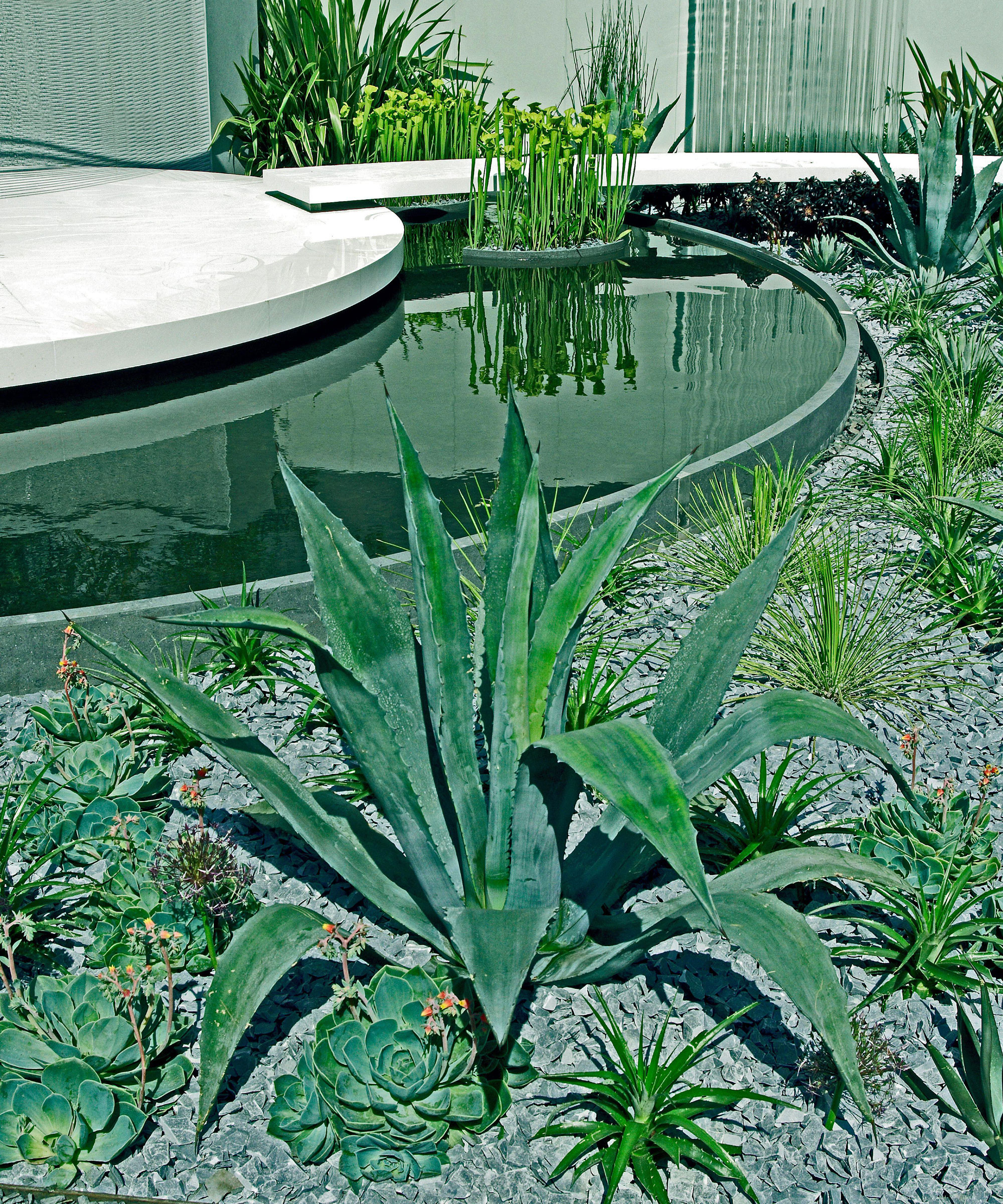
A key principle of most good garden landscaping ideas is repeating plants of the same variety in patterns or groups of 3 or 5 plants. Or, areas of mass planting. This repetition helps to draw the eye smoothly through the garden and unify the design.
"Perhaps more than any other plants, succulents – because their leaf shapes are distinctly pointed, oval, or cylindrical – offer opportunities for crisply defined repetitions of form," says Debra Lee Baldwin. "Repetition is essential for unifying a landscape. Large agaves, in particular, illustrate this: just three of them, all the same, and strategically placed, will lend continuity to a garden regardless of its other components."
Debra points out that repetition doesn't always require multiples of the same plant. There are subtler ways to achieve it, such as by repeating patterns, textures, silhouettes, or flower/foliage color.
5. Plant up a series of complementary containers
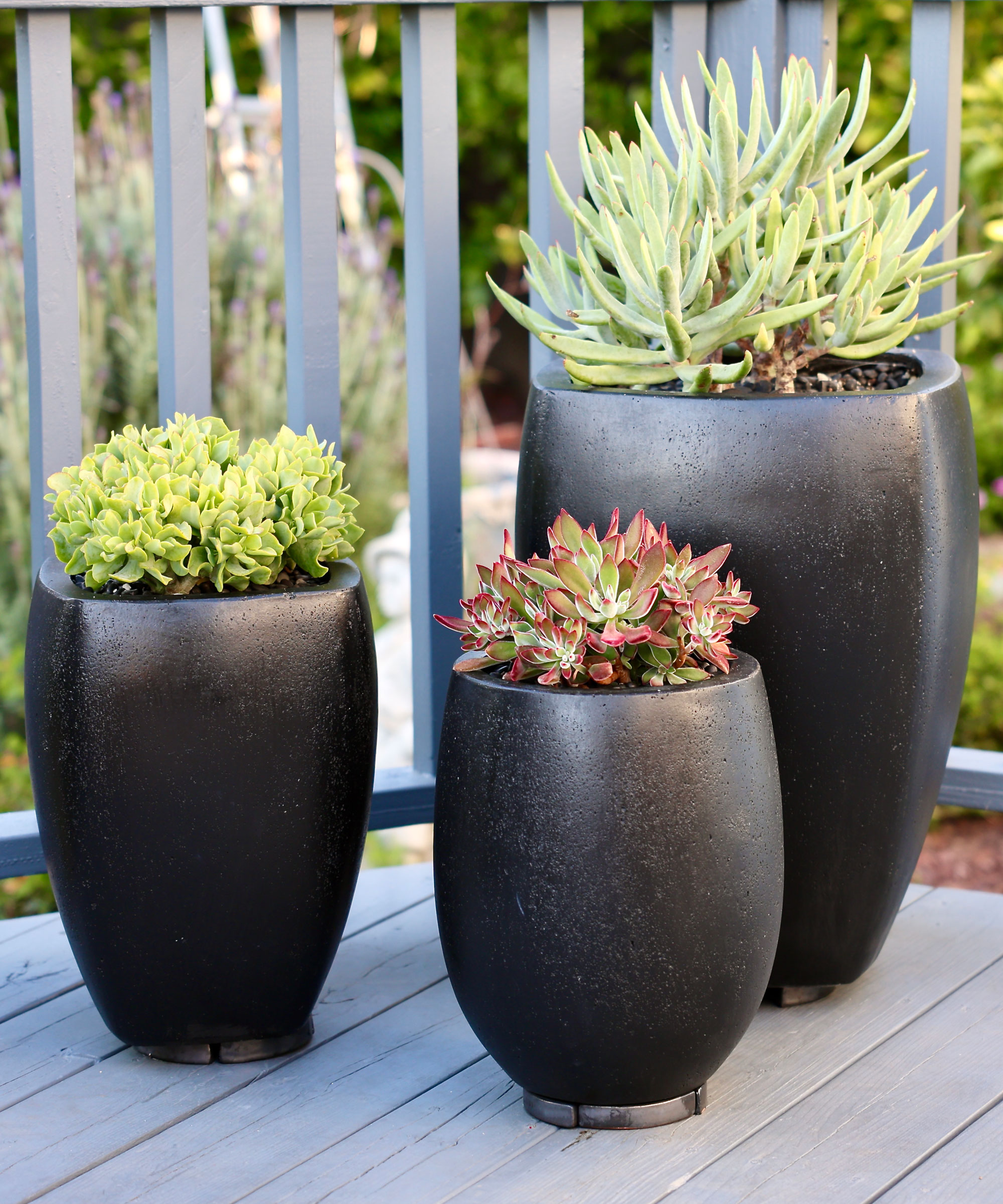
If you garden in a small urban space you can channel the trend for succulent garden ideas and container gardening on roof gardens, patios, balconies, and decks. This creates an easy-care scheme that once planted up requires very little maintenance.
"Containers can transform an urban balcony into an inviting, easy-care garden space," says Debra Lee Baldwin. "Succulents need little pruning or deadheading, grow slowly, and come in varieties suited to any container and amount of sun or lack thereof."
Outdoor succulents planted in container gardens will thrive for years before you need to repot them. If you're planning on quite a few containers co-ordinate one or more design elements by grouping complementary plants, materials, or colors to achieve a co-ordinated effect. You can also use succulents in vertical garden ideas such as green walls or green roofs if you have limited space. The plants are shallow-rooted, stay compact, survive even if the growing medium dries out, and are perfect for creating patterns.
6. Make gravel or crushed stones your landscaping go-to
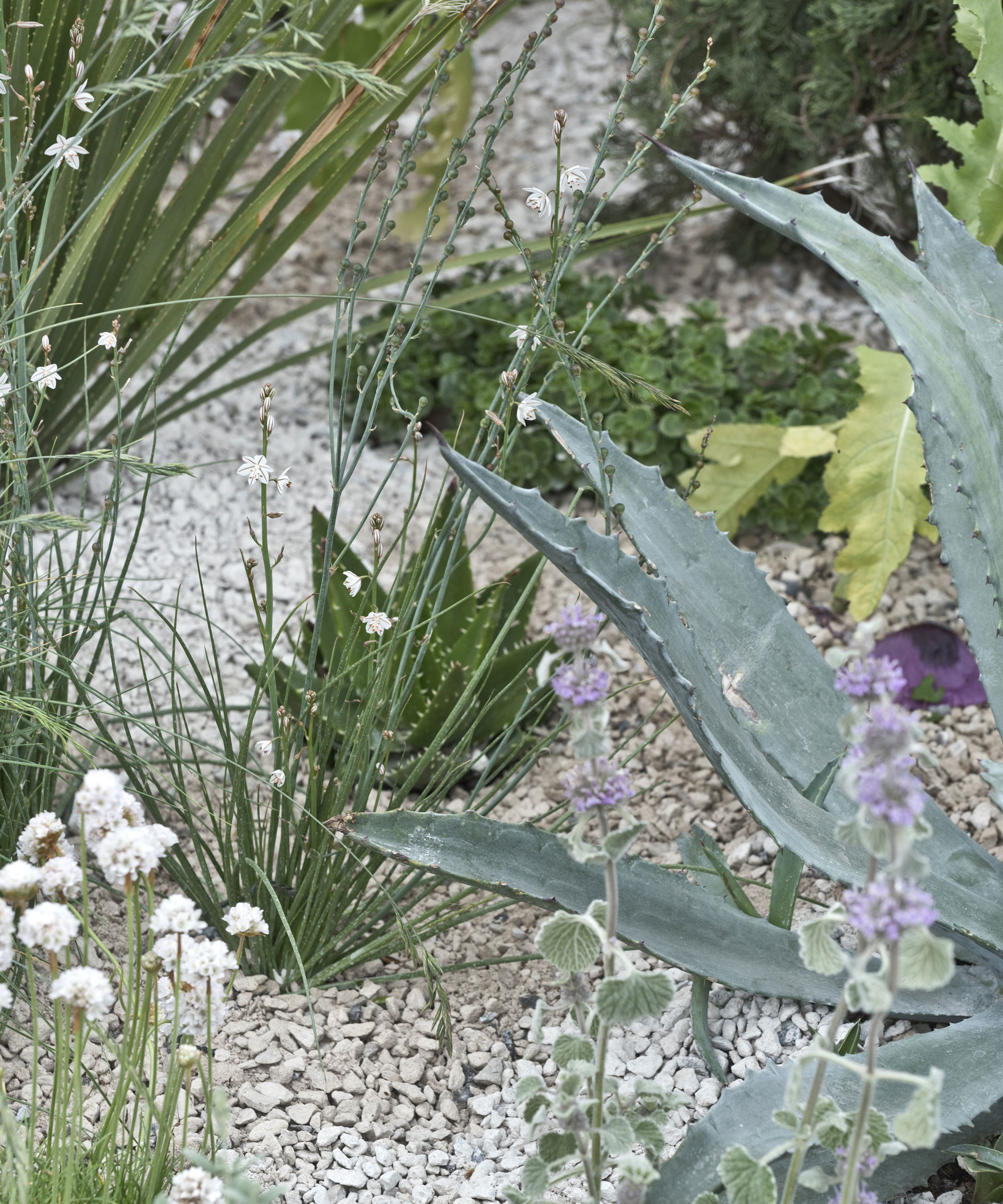
Gravel, crushed stones, and pebbles were simply made for landscaping projects with succulents. Wherever possible source stones locally as these will blend in seamlessly and also offer a sustainable gardening option as you take out the transportation issue. If you have space you can even supersize the look by adding some boulders to take your stonescaping to the next level.
"Boulders are a popular element for dry climate garden design," says horticulturist Noelle Johnson, author of Dry Climate Gardening. "They serve as a great visual anchor for plants. Pair a boulder next to a plant, and it looks better due to the mixture of heights and differences in texture. It's a great way to add height in a relatively flat landscape."
A combination of succulents and boulders helps to create a desert vibe. For a more natural appearance, once you have your boulder in the desired position Noelle suggests burying the bottom one-third. Then your design will look like it's been there forever.
7. Add a quirky little touch
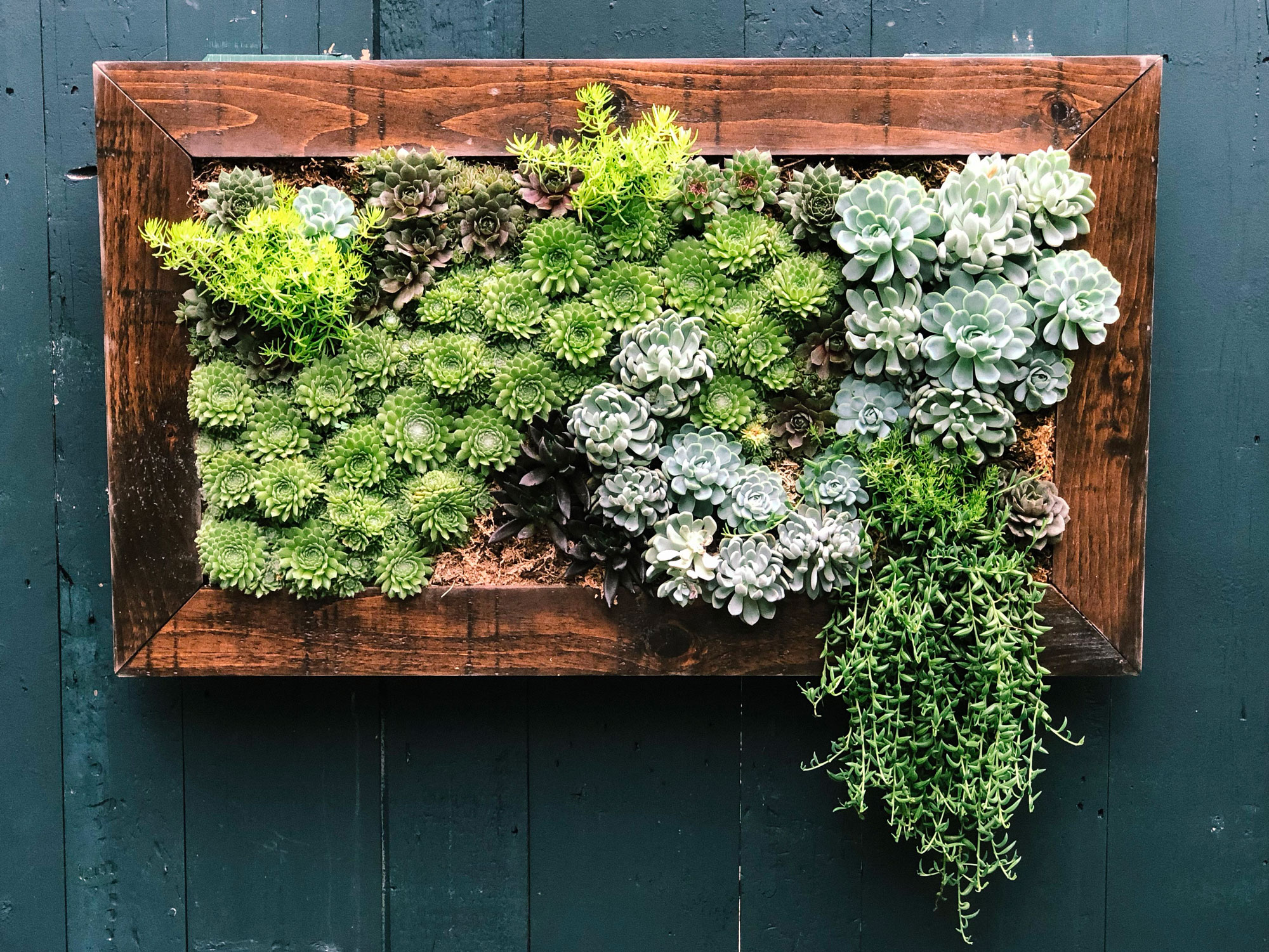
Succulents can be used in a range of garden art ideas to create pictures, picture frames, wreaths, mini-deserts, or garden scapes in containers, or to fill in water features you may no longer be using. You can also use them to create eye-catching patterns in flowerbeds or borders.
Good varieties to work with for succulent garden ideas like these include sempervivum, which are tough low-growing plants that come in a range of colors including green, white, red, pink, purple, and mauve. They don't mind being divided to get more plants either and always root well when replanted.
Sempervivums thrive in very little compost, making them ideal for garden wall ideas like this picture design above. If you prefer to mix it up rather than keeping things purely green, try 'Purple Dazzler', a lovely mix of green and dark purple, or 'Terracotta Baby', which has dramatic dark red foliage. Sempervivum translates as 'always living' so you can count on them to give year-round interest too!
FAQs
Do succulents like sun or shade?
Most succulents thrive in bright, direct light and may need at least 6 hours of sunlight daily. But for shade garden ideas, choose succulents that thrive well without the sun's help.
There are a few hardy plants that you can add to those dark corners in your yard — including the infamous Jade Plant, the Fox Tail Agave, Burro's Tail, String of Pearls, and many more.
Lifestyle journalist Sarah Wilson writes about garden design and landscaping trends. She has studied introductory garden and landscape design, and also has an RHS Level 2 qualification in the Principles of Plant Growth and Development. She is a regular contributor to Livingetc.com, and also writes for Homes & Gardens, Country Living, Country Homes & Interiors, and Modern Gardens magazines. Her first job was at Elle magazine, during which time a trip to the beautiful La Colombe d'Or in St-Paul-de-Vence led to an interest in writing about all things botanical. Later as lifestyle editor at Country Homes & Interiors magazine one of the highlights were the run of captivating country gardens that were featured.
